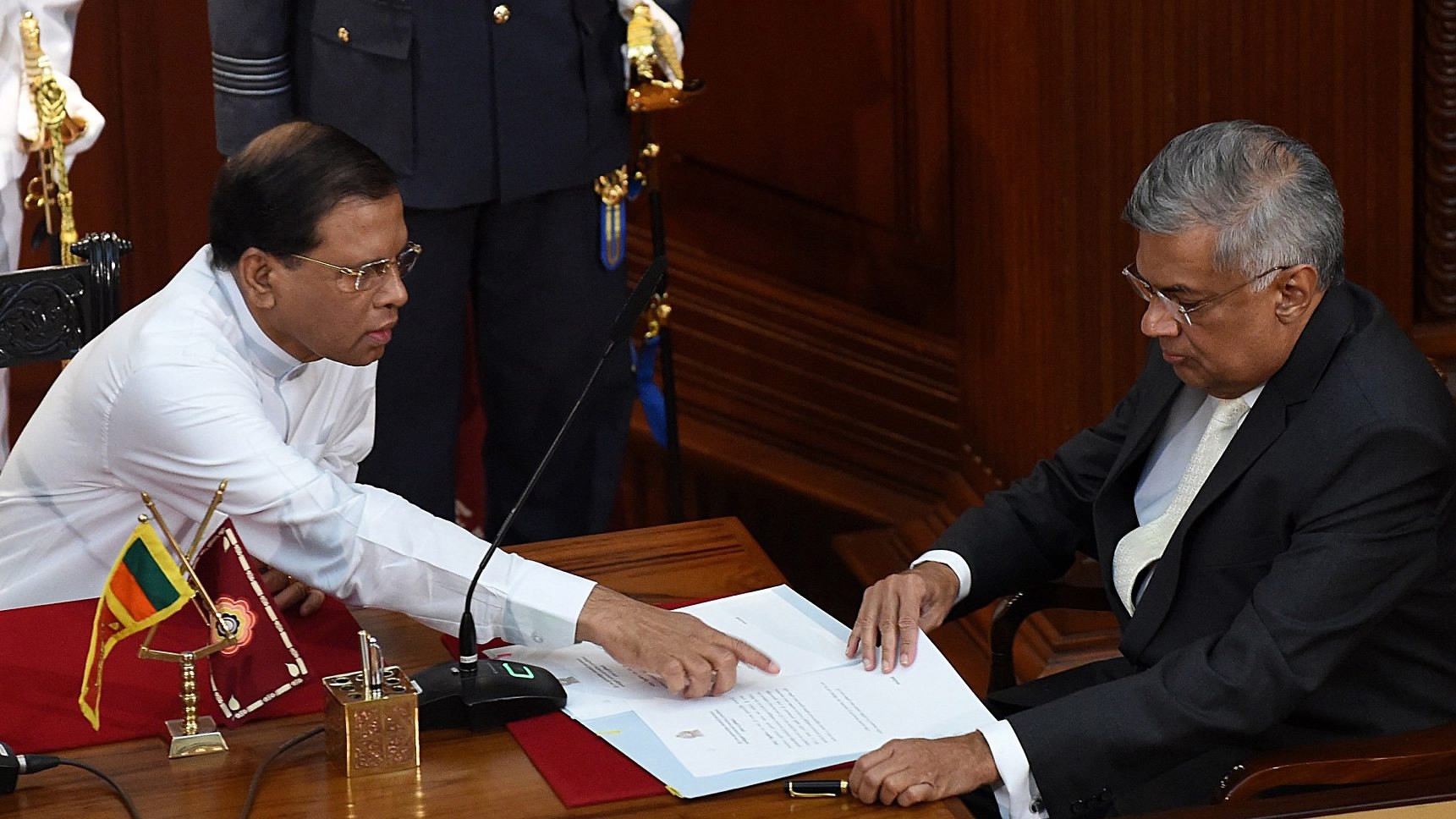
Politics
11:11, 04-Apr-2018
Sri Lanka PM faces no-confidence motion in parliament
CGTN

Ranil Wickremesinghe faces a no-confidence motion in parliament on Wednesday that could lead to his departure as prime minister of Sri Lanka's national unity government.
Wickremesinghe, head of the United National Party (UNP), leads the coalition in alliance with President Maithripala Sirisena's Sri Lanka Freedom Party (SLFP). However, the SLFP on Tuesday indicated it would vote against the prime minister.
Why is the PM under pressure?
Wickremesinghe has faced criticism for failing to deliver on the economy – growth fell to 3.1 percent last year, its worst pace since a recession in 2001 – and has been weakened after poor local election results in February.
The motion to be debated on Wednesday accuses Wickremesinghe of financial mismanagement and failing to control recent anti-Muslim rioting. The SLFP also blames him for failing to prevent an alleged scam in the bond market.
The opposition, backed by former president Mahinda Rajapaksa, won local elections last month and hopes to divide the ruling coalition with the no-confidence motion.
It aims to bring forward a national poll due in 2020. A two-thirds majority in the parliament would be required to call a snap election.
How does the maths look?
Wickremesinghe's UNP holds 107 members in the 225-member parliament.
With the support of 42 members of the SLFP the coalition had a comfortable majority – but now the president’s party has turned against the prime minister, the vote is likely to go to the wire.
If the SLFP does vote against the government, Wickremesinghe would need the backing of minority parties in the opposition – or abstentions – to stay in office.

Sri Lanka's Prime Minister Ranil Wickremesinghe (R) and Sri Lankan President Maithripala Sirisena (L) take part in a swearing-in ceremony in Colombo in 2015. /VCG Photo
Sri Lanka's Prime Minister Ranil Wickremesinghe (R) and Sri Lankan President Maithripala Sirisena (L) take part in a swearing-in ceremony in Colombo in 2015. /VCG Photo
Shailesh Kumar, Asian director at consultancy Eurasia group, told Reuters cooperation between the UNP and the SLFP will be limited after the no-confidence motion, even if Wickremesinghe survives.
"This means there will be limited appetite for economic legislation and instead the two will likely indulge in populism to shore up their positions ahead of the 2020 elections," Kumar said.
Wickremesinghe was installed as prime minister three years ago after forming an alliance with Sirisena, who won a surprise victory over Rajapakse in the January 2015 presidential election.
(With input from agencies)
5171km

SITEMAP
Copyright © 2018 CGTN. Beijing ICP prepared NO.16065310-3
Copyright © 2018 CGTN. Beijing ICP prepared NO.16065310-3